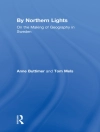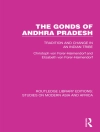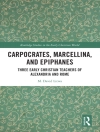From the late nineteenth century to the post-communist period, Albanian and Georgian political and intellectual elites have attributed hopes to “Europe, ” yet have also exhibited ambivalent attitudes that do not appear likely to vanish any time soon. Albanians and Georgians have evoked, experienced, and continue to speak of “Europe” according to a tense triadic entity—geopolitics, progress, culture—which has generated aspirations as well as delusions towards it and themselves. This unique dichotomy weaves a nuanced, historical account of a changing Europe, continuously marred by uncertainties that greatly affect these countries’ domestic politics as well as foreign policy decisions. A systematic and rich account of how Albanians and Georgians view Europe, this book offers a fresh perspective on the vast East/West literature and, more broadly, on European intellectual, cultural, and political history.
Inhoudsopgave
Chapter 1. Nationhood and Empire: A Tale of Historical and Ethno-cultural Similarities and Differences
Chapter 2. From Empire to Independence: Europe as the Future
Chapter 3. The Nation-State in Imperial/Supranational Shadow: the Apparent Decline of Europe
Chapter 4. Communist Experiences in a Divided Europe
Chapter 5. ‘Return to Europe’, ‘Closer to Europe’: Post-communist Expectations
Epilogue: Is ‘Europe’ still the Future?
Bibliograhpy
Index
Over de auteur
Adrian Brisku is a research fellow at the University of Helsinki, working on the “Research Project Europe 1815-1914, ” funded by the European Research Council (ERC). His interests include comparative political and intellectual European history with a particular focus on modern Albania and Georgia and nineteenth-century Ottoman and Russian empires.












